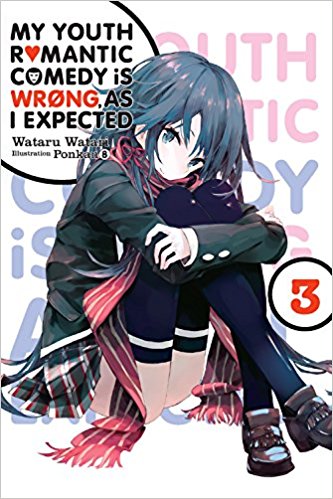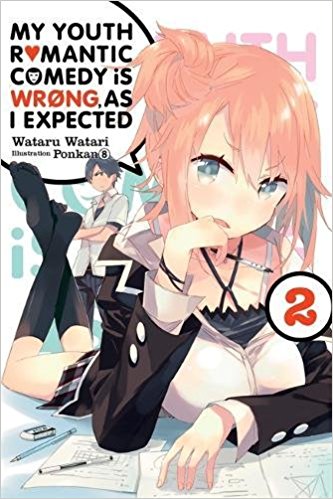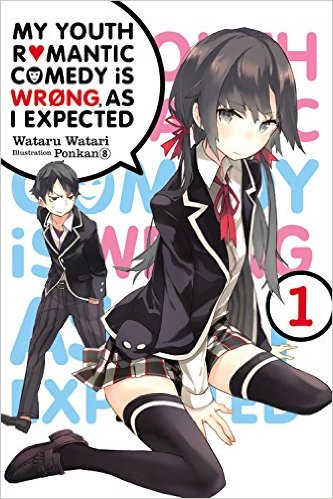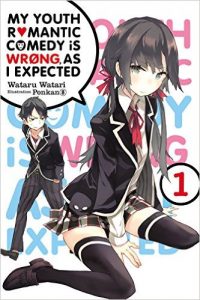By Wataru Watari and Ponkan 8. Released in Japan as “Yahari Ore no Seishun Rabukome wa Machigatte Iru” by Shogakukan. Released in North America by Yen On. Translated by Jennifer Ward.
In many ways this third volume of OreGairu actually moves backwards: having seen Hachiman seemingly blow up his burgeoning friendship with Yui in the second book, much of this third one consists of he and Yukino trying to get Yui to return to the Service Club, if only as the teacher demands a certain number of people in the club. They are impeded by Yui’s hurt awkwardness, Yukino’s inability to really interact with people normally, and above all Hachiman being who he is. The point of this series to a degree is amusing the reader with Hachiman’s narration and analysis of himself and others, and I am frequently amused. But I do hope that eventually we get some sort of deconstruction of this mindset or attempt to take it apart, because it also reminds you how incredibly annoying this kind of guy really is. For someone in their late teens, Hachiman must seem awesome. He frequently exhausts me.
Yukino, on the other hand, does get quite a bit of attention devoted to her as well, and we start to see a few reasons why she is the way she is, first and foremost being the appearance of her older sister. Haruno is bright, vivacious, communicative, and seemingly nothing whatsoever like Yukino… except Hachiman, who is quite clever in ways that don’t involve himself, realizes is a false front. I’m not sure if Haruno is meant to be a villainous character here – she doesn’t actually seem to be secretly needling Yukino as you’d expect if she were, and the delight over Yukino having a boyfriend seems genuine, false front or no. Yukino is also more apparently making an effort to get closer to Hachiman, though because of who he is and who she is, this doesn’t go far at all, even with Hachiman’s sister trying to set them up.
The book ends with a “bonus chapter” that is the novelization of a drama CD included with the volume, but you get the sense that if it hadn’t come with a drama CD the author would have included it anyway, as it’s in no way irrelevant. By the end of the story Hachiman and Yui have made up and gone back to baseline, they’ve all had a cute birthday party at a karaoke place, and Hachiman has had romantic thoughts about his cute male friend Saika about 80,000 times, which has gotten less amusing as the book go on, and I wasn’t all that amused by it to start with. That said, there are also some very funny jokes here as well – I loved Yui completely misreading Hachiman’s present to her, as well as the brief narrative from Shizuka’s POV, showing that the teacher is every bit as bad as the students who she’s trying to rehabilitate.
The main reason to read this is still Hachiman’s first person snark and the jokes. But so far if I wanted to read a series about a quirky cynical narrator and a frosty socially awkward brunette beauty, I have the Monogatari Series. I’m hoping that in the next book we try to do a bit more with these people than just circling each other warily and grudgingly getting along.





